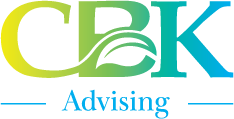“I don’t know”
“I don’t know.” Too often this thought stops people in their tracks. To admit “I don’t know” is something we have learned should be avoided because it brings up feelings of inadequacy and incompetence.
To artists, “I don’t know” is wonderful because artists work from a palate of being in the moment. Why is this thought frowned upon in the business world? Artists are free to express themselves in the moment, to create, to discover. Artists are able to do things they have never done before with trust and confidence in their ability to listen to the creative energies within and around themselves.
However, those of us who work as managers, directors, and leaders somehow feel we have to know all the answers all of the time, and we are “less than” if we speak the simple truth to a question – “I don’t know!” Sometimes, fast track leaders hoard work, or worse compete with their employees to avoid acknowledging this truth. A skill effective leaders need to develop is the patience to explore with rigor into the world of the unknown. This skill, of course, requires leaders to be at peace with taking the risk of being wrong in the interest of generating new insight.
Frequently, the need to be seen as competent prevents both leaders and employees from taking the risk of being wrong. It stops them from exploring what they do know and applying that knowledge in creative new ways to come up with ideas and insights. Knowledge is important, but as Napoleon Bonaparte said, “Imagination rules the world!”
Too often, “I don’t know” is a knee jerk response used to avoid thinking about a hard question that does not have an immediate, easy answer. Ironically, questions without easy answers are the domain of seasoned leaders. I am frequently surprised at how uncomfortable some leaders are at dealing with questions to which they do not immediately know the answer.
As a business coach, I have learned that my greatest value lies not in what I know, but rather in creating conditions for my clients to explore their world of “not knowing.” I have also learned when my clients mutter, “I don’t know,” they often expect me to assume the work of finding the answer for them. When I am at my best, I do not take the bait. Rather, I inquire, “You don’t know, or you won’t say?”
“I don’t know” does not always mean what it says. Effective leaders have learned “I don’t know” is not an impenetrable wall, it is a doorway through which to enter. “I don’t know” is an opportunity to help build trust, to express creativity, to explore wisdom, and to imagine the possibilities. It tells the inquisitor, “I am not perfect” and this acknowledgment builds much equality!

